Anyone who knows me knows I’m not a particularly loud speaker. I’m not a whisperer, but unless I’m really off on a rant (as has been known to happen on occasion), even if you’re at the next table you’ll struggle in your eavesdropping efforts.
Others, like the Australian at the end of the boat, are the opposite. I cannot not hear him—no matter how much I try. Ho hum, just a day and a half of the boat trip left to go.
This video captures the appeal—but look how crowded it is on board!
Allow me to rewind slightly. I filled the previous morning zip-lining at the Gibbon Experience, then transferred back to Huay Xai. Once I’d dumped my gear at a guesthouse, the rest of the day was lost in a riverside cafe with a frosty Beerlao (perhaps two), eating, and watching the sun set over Thailand.
In the morning, a gaggle of eight of us, tickets in hand, lined up and climbed into the “backpacker boat”. Ahead of us, a day and a half trip on the Mekong River, with an overnight stop at Pakbeng.
Good night Thailand. Photo: Stuart McDonald.
As with the boat from Xieng Kok, our vessel is a wooden cargo affair, upgraded slightly to make tourists more comfortable. The toilet has a door (though it it still nothing more than a hole in the deck—aim carefully), and there are red plastic chairs to sit on. One of the more entrepreneurial crew members has a drinks cooler—he’ll sell us chilled Beerlao later.
Eight is a low load. I’ve seen these boats with twenty plus on them. And about an hour into the trip we stack the chairs and recline on the deck—far more comfortable.
While the weather is threatening, the trip is beautiful. Every time I’ve done this journey a new or different angle on the river has been my most memorable moment. This time it seems, the most memorable aspect is going to be the Australian.
Pick your chariot. Photo: Cindy Fan.
The group is a typical mix of uniformly Western travellers. There’s the Australian, plus me making two, a middle aged Dutch couple, two 20-something Canadian women, a German and an Italian—both I’d guess in their mid thirties.
The other Australian though, is easily the youngest, 19 or 20, and he’s from the most painful of traveller sub-species—the competitive traveller.
He’s been bragging to the two Canadians about the “unspoilt village” he has just come from (Pai). Earlier he was on about Ko Tao, “where they filmed The Beach” (they didn’t). Before that, he says he drank snake blood at Lumpini Park in Bangkok, something I’m positive is a lie.
Slow boats come in many sizes. Skip the olive green one! Photo: Stuart McDonald.
I turn and lean against the railing, watching the river slide by. We’re in a smooth stretch, moving fast, slicing through the chocolate water. I watch the ripples from the prow, they foam like a bad latte then shoot out to meet the cliffs we’re passing. I put my earphones on and fall asleep as we near Pak Tha.
I wake, and he’s in a heated discussion with the Dutch couple. Apparently the beach he stayed at on Ko Pha Ngan was far better than where they did. The woman has long lost interest in the conversation but her partner is arguing the point.
This is the worst aspect of the competitive traveller—an inability to understand that travel is different things to different people and that, well, it isn’t a competition. It isn’t pleasant having someone tell you where you stayed was a dump (unless it was Sihanoukville), especially when it is being done so gracelessly, as by the Australian. The Dutch guy is bristling.
The Mekong from the river bank at Pak Tha. Photo: Adam Poskitt.
I try to gather which beaches they’re arguing about as I know Ko Pha Ngan very well. I’m horrified to learn I actually agree with the Australian. Where he stayed wouldn’t have been my first pick, but I would never have recommended where the Dutch couple spent their time. What I think though, doesn’t matter, it wasn’t my trip and they loved it. But the Australian just wont let it go.
On and on they go. He pauses to go get more beer, just for him of course, and while he’s gone, there’s a quick and annoyed exchange in Dutch. You don’t need to speak a word of the language to know she is over it.
He returns, quaffs the beer, wipes his mouth with the back of his hand, and gets straight back into it.
Ships that pass in the night. Photo: Stuart McDonald.
“Look I don’t mean to be rude, but it is just a shit beach and I don’t get why you stayed there. Why didn’t you move?”
“We liked it. We loved the village and the food. We didn’t want a tourist beach.”
Ha ha, he’s calling the Australian a tourist and he bites. Big time.
“I’m not a tourist, I’m a traveller.”
The entire boat groans as one. Can we throw him into the river yet?
His line is enough for the Dutch woman though, and she leaves, climbing onto the roof. Once up there, she yells something down and her companion follows.
A speedboat refuelling. You don’t see these much on the river anymore. Photo: Stuart McDonald.
There’s a pause and the Australian looks at me, but there is no way I want to talk to him, so I escape to the roof as well. The Dutch guy is getting told off as I settle down on the hot tin roof a metre or so from them.
The scenery is sublime.
The Dutch guy leans over to me, his partner still shaking her head, and apologises.
“I’m sorry about that,” he says, “I just can’t stand people like him, they make me crazy.”
Then he laughs, “We’ve never even been to Ko Pha Ngan!”
The day passes. We see people panning for gold on the river bank—they use mercury to bind it, making for an unhealthy way to earn money. Further down, men cast glittering white fishing nets. A village here, a village there—smudges of brown in the surrounding olive. We pass the occasional other boat, but it’s mostly just us, on the roof, and it is pretty magical.
The boat landing at Pakbeng. Photo: Stuart McDonald.
By the time we approach Pakbeng the three of us have been on the roof for hours. The occasional beer run, playing cards, chatting about what we do—they’re both academics on a sabbatical. Time passes. Slow.
That’s why they call it the slow boat.
Tomorrow: A close encounter in Pakbeng, then finally, Luang Prabang.




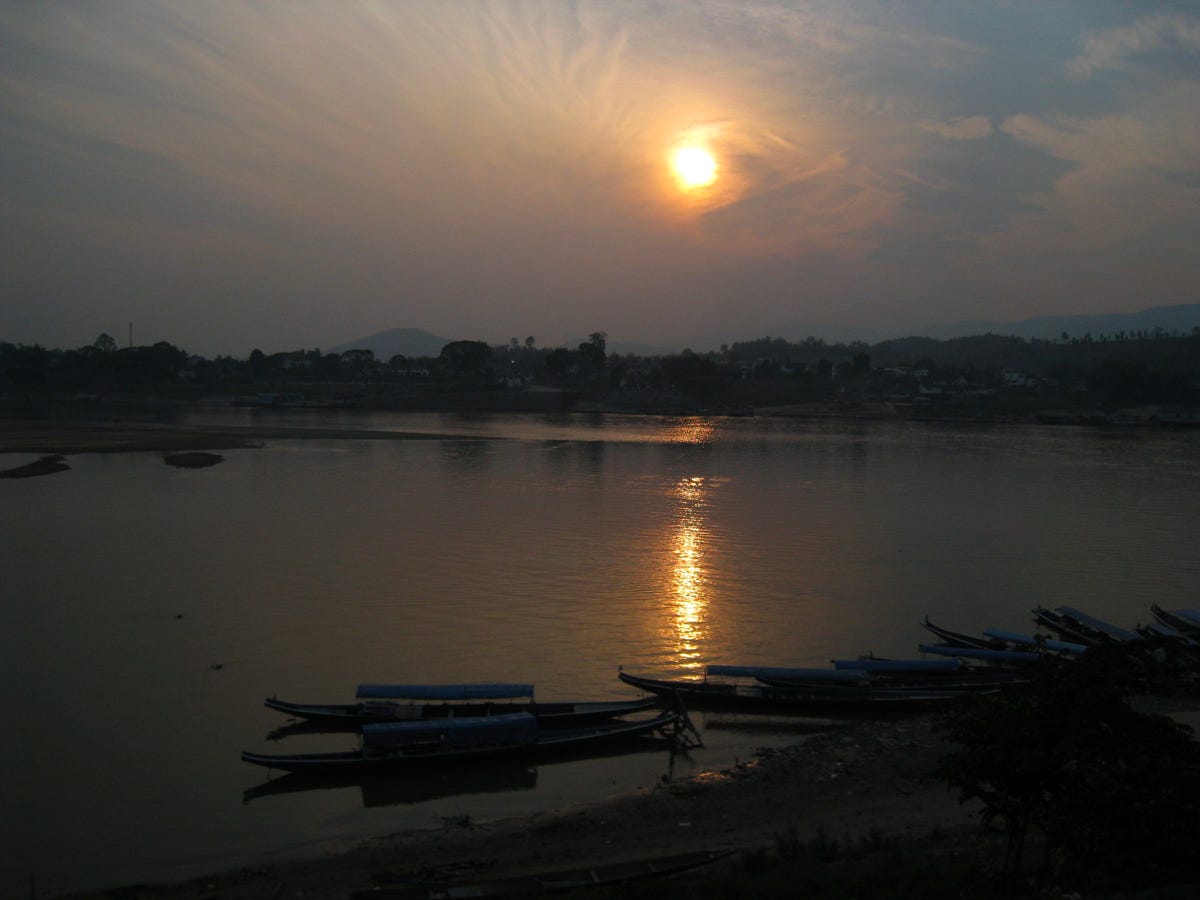
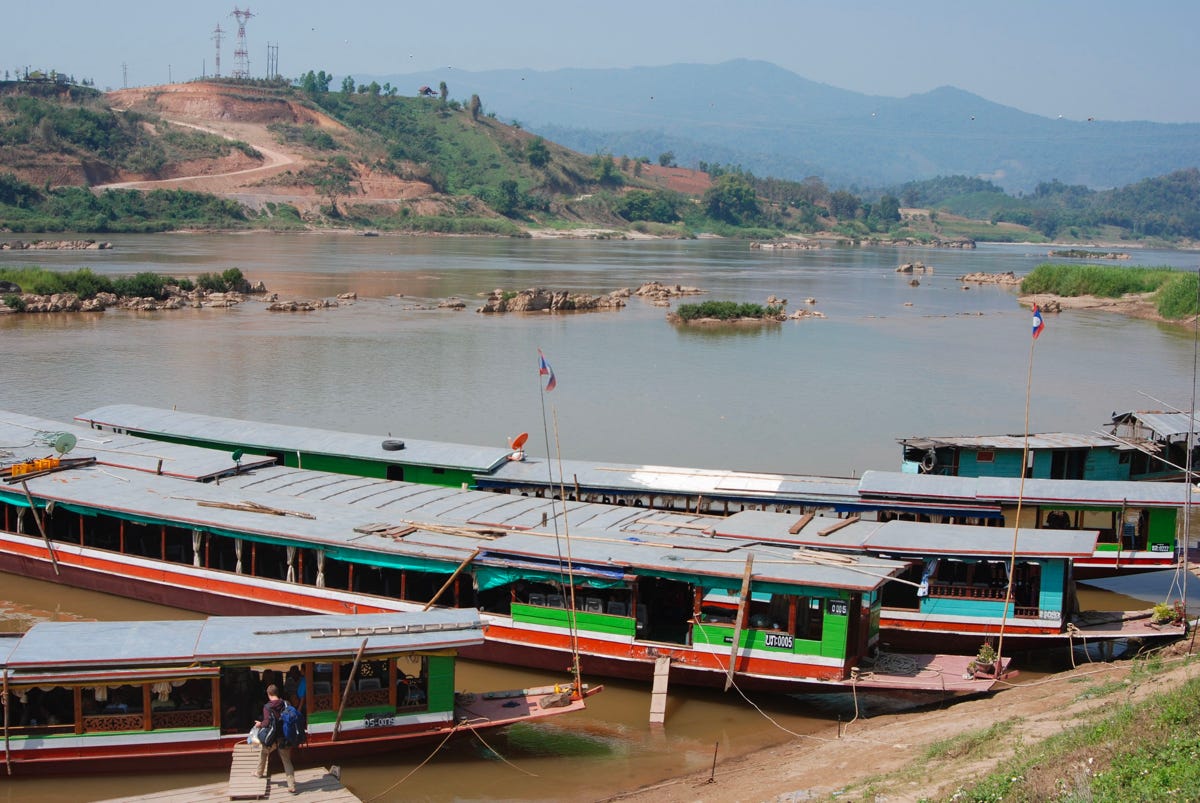
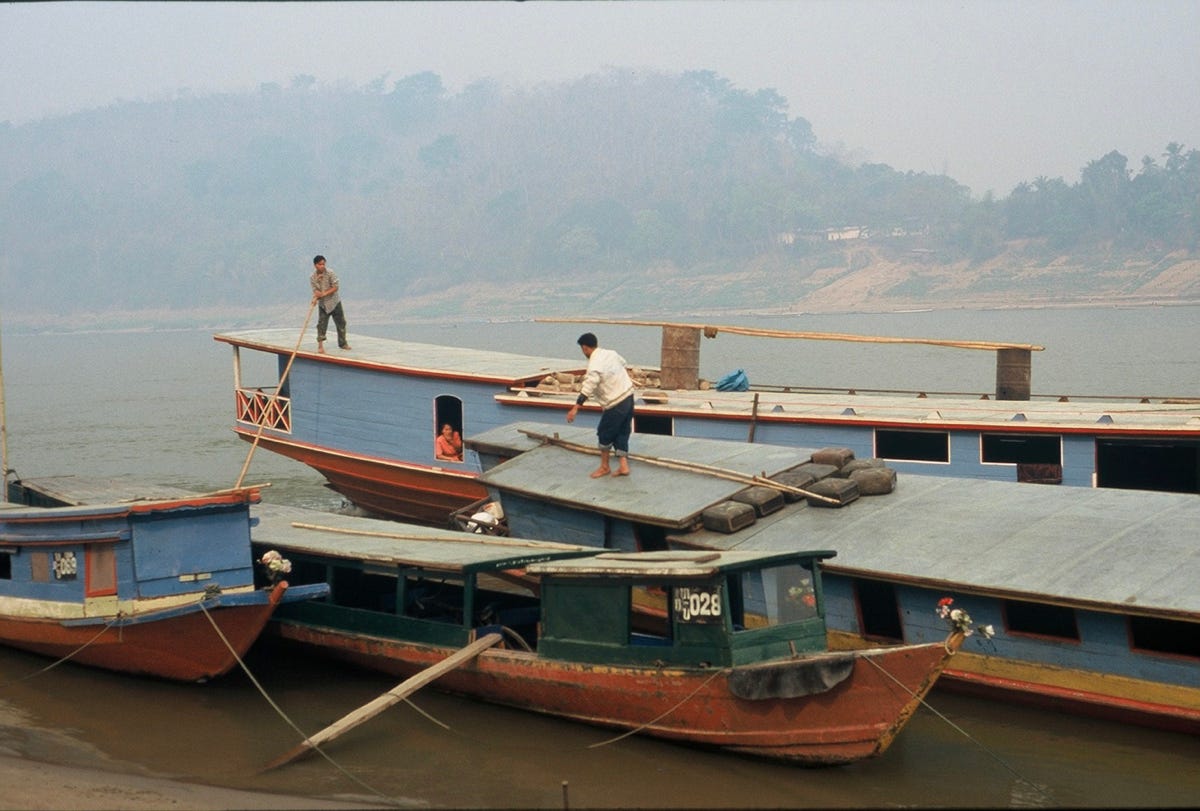
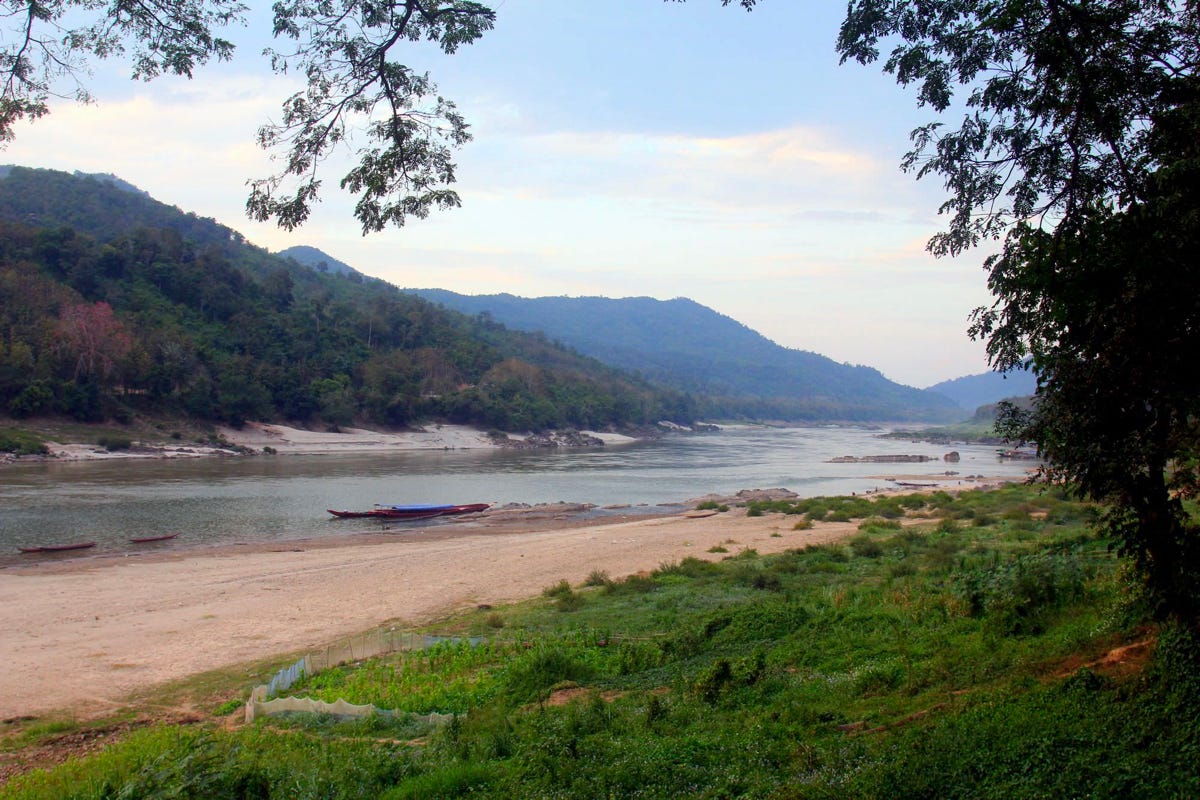
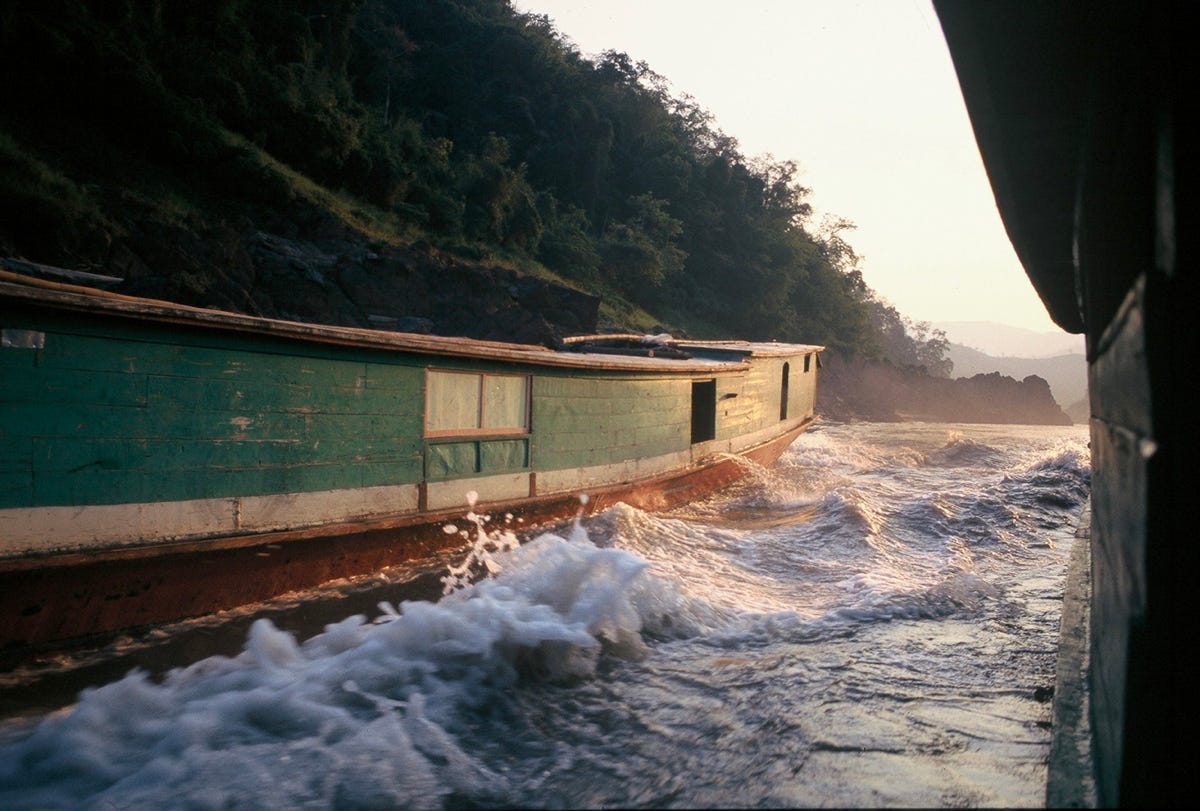
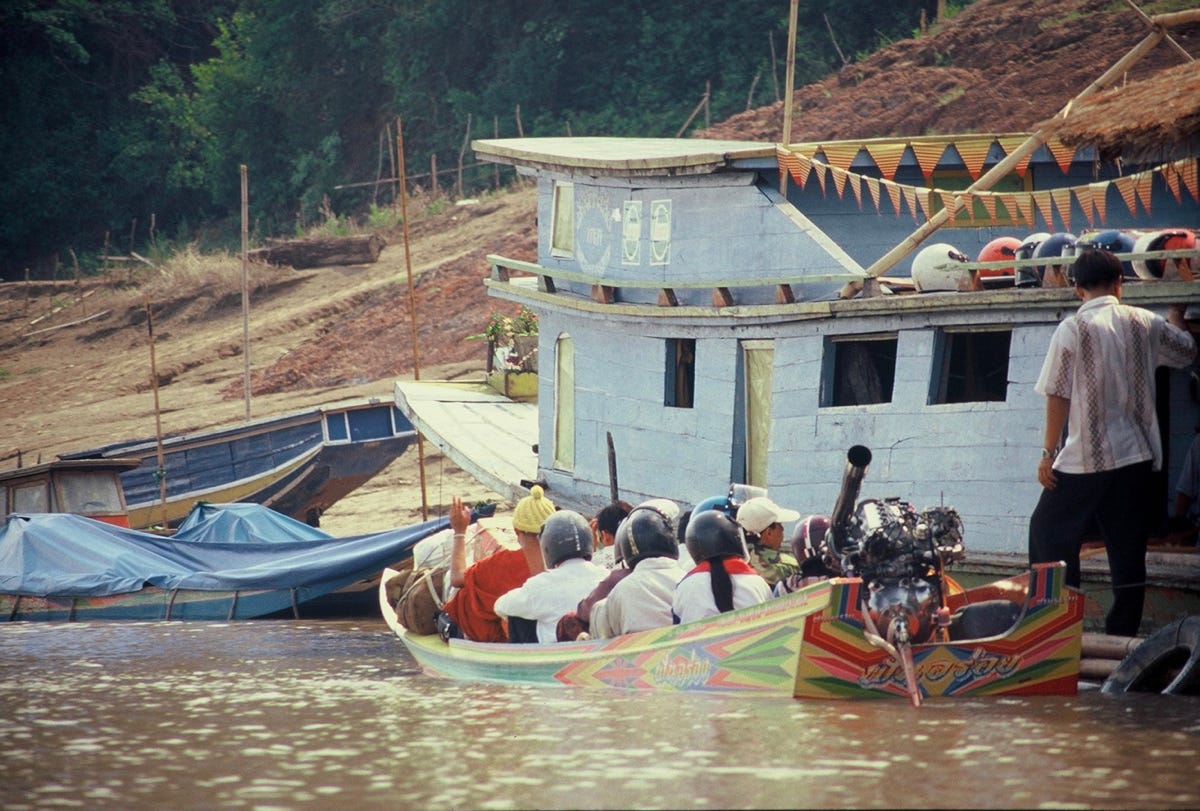
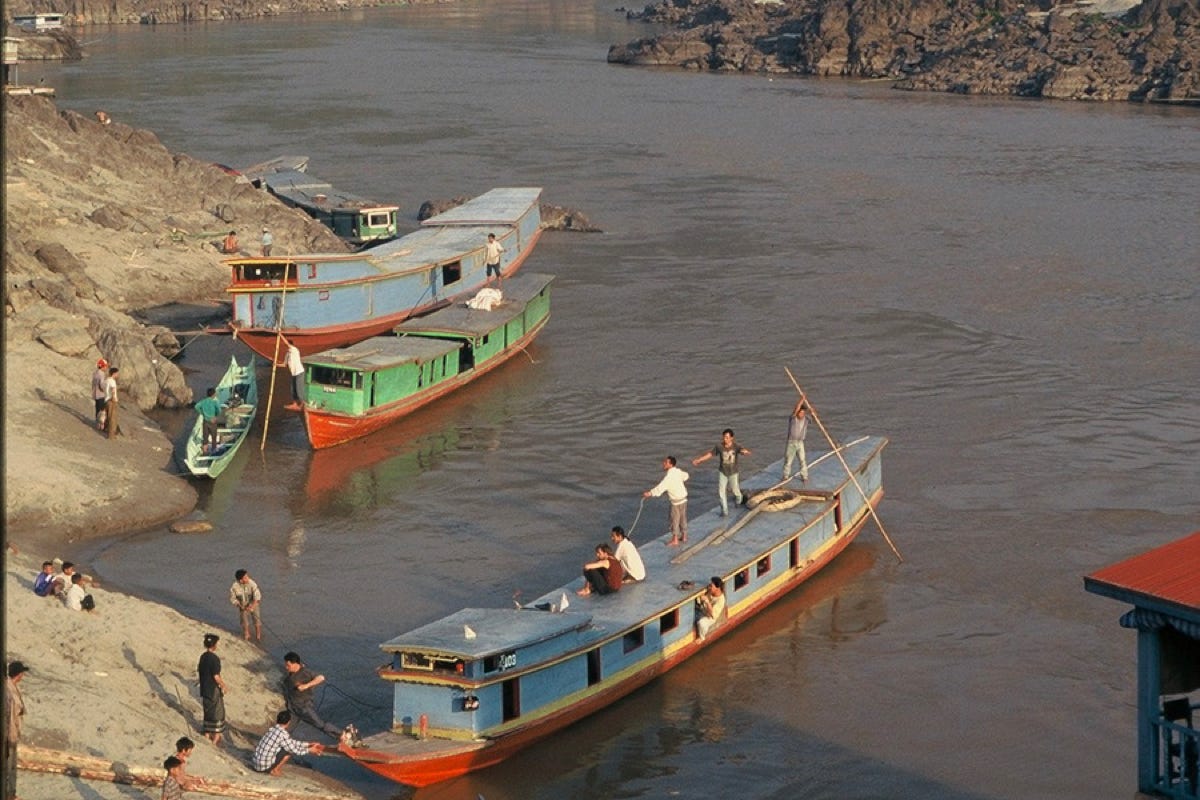

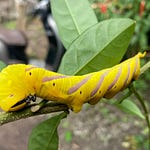
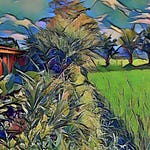

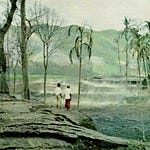
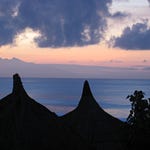
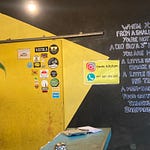
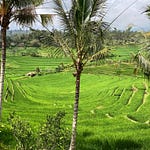

Share this post